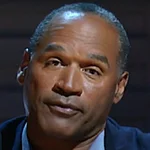 |
| Bob Brody |
Every week all of us account executives at Howard J. Rubenstein Associates had to fill out a triplicate report about each client. It would indicate the actions we took and any media results – or hits -- that we managed to deliver.
And every week Howard Rubenstein himself reviewed every report that came through from all 100 account executives on all 400 or so clients at his firm. He wrote his feedback at the top, usually a single word: “weak” or “needs improvement” or, in rare cases, “strong,” “creative” or “outstanding.”
We who worked for Howard lived and died by his responses to our reports. If his reaction was favorable, you felt entitled to resume breathing. Otherwise you operated on pins and needles until your hopes arose anew the following week.
So it went at Howard J. Rubenstein Associates, where I served as a senior vice president from 1994 to 1998. Waiting to see how Howard Rubenstein, the PR legend who died the other day at age 88, graded your reports came as close as I ever expect to get to being waterboarded,
The bottom line with Howard was invariably getting hits. The clients basically paid you for hits. Get me a hit, they barked, any hit. If not a quick hit then a late hit, and if not a big hit then a small hit, a quote, a mention at least, any mention.
Get a hit, that's what it was all about, that's all it was ever about, any and all excuses strictly the opiate of the loser. This was a hit factory, and no one-hit wonders ever need apply. Whichever client needed a hit most was supposed to get a hit first. It was just that simple. The hit was nothing less than holy writ. You got your clients hits or you might land out on your ass.
Call till you fall. That was more or less the drill at Howard J. Rubenstein Associates. Pitch yourself hoarse. Except on those rare occasions you really had the goods, a nugget of Real News, the media tried to shoo you away as if you were some kind of kamikaze mosquito that kept dive-bombing into its skin looking for fresh blood.
But what a kick! Karl Wallenda, the high-wire artist, was right. To be on the wire is life. The rest is waiting. That’s how I felt about pitching. To be on the phone was life. The rest was waiting.
And what an office! The firm occupied an entire floor of about 40,000 square feet. All around you, the agency would be going full tilt. Secretaries scanned in hits, more politely known as media placements, on computer screens and faxed tip sheets to assignment editors. In private offices along the halls, account executives worked the phones, doing the old smile and dial. And oh, how they could all talk! Big talk and small talk, fast talk and smooth talk, straight talk and sweet talk, jive talk and doubletalk.
And almost all the talk was in the service of chasing those coveted hits. You had only a few seconds to set your bait. You flung your line out there into the vast lake called the news media and either it stayed limp or you felt a promising tug.
In those four years of boot camp, I learned the Rubenstein style. Quick and dirty, that's how our clients liked it, and so that's how it had to be. I had to synchronize your metabolism accordingly and slice time fine.
Everything there moved at high velocity, accelerated as if in time-lapse photography, my lingua franca the telegraphic, my every decision a snap decision, my every job a rush job, my life just one long drop-dead deadline. I could either do it right or I could do it now, but mostly I had to do it right now. If you ever were lucky enough to experience a moment when everything seemed under control, it meant you were slacking off.
But let me tell you my favorite moment of all, the moment that revealed the real Howard Rubenstein to me, a mensch among mensches. It happened on one of those occasions when I got to operate alongside Howard rather than merely in his employ. We visited a client of his, the CEO of a large business, who was about to serve a sentence in jail.
We gathered in a conference room with the CEO and his inner circle to hash out a succession strategy for the company. And toward the end, the CEO turned to Howard to ask him a question about his impending imprisonment. “Howard,” he said, “what should I say to my son? How do I explain this?”
Now Howard could have recommended any number of answers. He could have said, “Everything will turn out all right.” Or “I’m sorry for my mistakes.” Or “I’ll be home soon.” But no. Instead, Howard placed his hand on the CEOs hand. And then he softly said, “Just tell him you love him.”
***
Bob Brody is an independent public relations consultant in New York City. A frequent essayist for The New York Times, The Wall Street Journal and The Washington Post, he is author of the memoir “Playing Catch with Strangers: A Family Guy (Reluctantly) Comes of Age.”


 The techniques deployed by OJ Simpson's defense team in the "trial of the century" served as a harbinger for those used by Donald Trump... People worry about the politicization of medical science just as much as they fret about another pandemic, according to Edelman Trust Barometer... Book bans aren't restricted to red states as deep blue Illinois, Connecticut and Maryland challenged at least 100 titles in 2023.
The techniques deployed by OJ Simpson's defense team in the "trial of the century" served as a harbinger for those used by Donald Trump... People worry about the politicization of medical science just as much as they fret about another pandemic, according to Edelman Trust Barometer... Book bans aren't restricted to red states as deep blue Illinois, Connecticut and Maryland challenged at least 100 titles in 2023. The NBA, which promotes legalized gambling 24/7, seems more than hypocritical for banning player for placing bets... Diocese of Brooklyn promises to issue press release the next time one of its priests is charged with sexual abuse... Truth Social aspires to be one of Donald Trump's iconic American brands, just like Trump University or Trump Steaks or Trump Ice Cubes.
The NBA, which promotes legalized gambling 24/7, seems more than hypocritical for banning player for placing bets... Diocese of Brooklyn promises to issue press release the next time one of its priests is charged with sexual abuse... Truth Social aspires to be one of Donald Trump's iconic American brands, just like Trump University or Trump Steaks or Trump Ice Cubes. Publicis Groupe CEO Arthur Sadoun puts competition on notice... Macy's throws in the towel as it appoints two directors nominated by its unwanted suitor... The Profile in Wimpery Award goes to the Ford Presidential Foundation for stiffing American hero and former Wyoming Congresswoman Liz Cheney.
Publicis Groupe CEO Arthur Sadoun puts competition on notice... Macy's throws in the towel as it appoints two directors nominated by its unwanted suitor... The Profile in Wimpery Award goes to the Ford Presidential Foundation for stiffing American hero and former Wyoming Congresswoman Liz Cheney. JPMorgan Chase chief Jamie Dimon's "letter to shareholders" is a must-read for PR people and others interested in fixing America and living up to its potential... Get ready for the PPE shortage when the next pandemic hits... Nixing Netanyahu. Gaza carnage turns US opinion against Israel's prime minister.
JPMorgan Chase chief Jamie Dimon's "letter to shareholders" is a must-read for PR people and others interested in fixing America and living up to its potential... Get ready for the PPE shortage when the next pandemic hits... Nixing Netanyahu. Gaza carnage turns US opinion against Israel's prime minister. Trump Media & Technology Group sees Elon Musk's X as an option for those who want the free expression promised by Truth Social but without Donald Trump, owner of 57.3 percent of TMTG... Chalk one up for "anti-woke warrior" governor Greg Abbott as University of Texas lays off 60 DEI-related staffers... Five percent of Americans see the US as its own worst enemy, according to Gallup.
Trump Media & Technology Group sees Elon Musk's X as an option for those who want the free expression promised by Truth Social but without Donald Trump, owner of 57.3 percent of TMTG... Chalk one up for "anti-woke warrior" governor Greg Abbott as University of Texas lays off 60 DEI-related staffers... Five percent of Americans see the US as its own worst enemy, according to Gallup.


 Have a comment? Send it to
Have a comment? Send it to 
No comments have been submitted for this story yet.